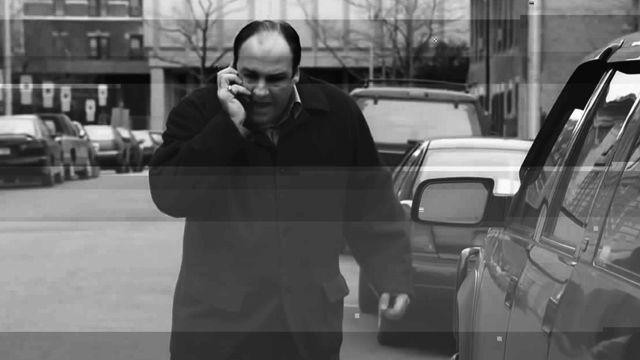What’s the Difference Between a Great TV Episode and a Great TV Moment?
There has never been more competition for your attention, and those circumstances have forced television to adapt. But if TV tries to compete with everything else, will it lose the very thing that makes it special?We didn’t set out to make the list of the best TV episodes of the 21st century as an elegy to a dying form, but the more I think about it, the more that might be the case. Just consider how much our cultural delivery systems have changed over the past 20 years, to say nothing of our patterns of consumption. I can read almost any comic in Marvel’s library, watch a movie from the Criterion Collection, and listen to nearly every Neil Young song ever made, and I can do it all from my phone, provided I can tear myself away from the constantly updating anxiety-and-amusement factories of Twitter, Instagram, and Facebook. Amazon replaced bookstores, while Apple and Spotify put an end to squandering afternoons thumbing through the racks at record stores. And television—at least the way we knew it up until a few years ago—is going through a radical transformation as well, not just in which outlets broadcast it, and the devices on which we watch it, but in how it is divvied up.
It’s almost quaint to imagine a corporation telling you that you have to wait for a certain day of the week, at a certain time, to watch an allotted amount of a television show you like. We are TV viewers at a time when TV doesn’t mean what it used to. We get our television from phone companies and online retailers. Soon, we will watch shows on our iPhones made by the corporation that manufactures our iPhones. The disassembly of the old ways of delivering this content has its pluses—diverse voices, new stories, new takes on old stories, a variety of tonal and stylistic approaches taken by talented people who either wouldn’t or couldn’t make TV before—but it’s not clear whether the people making television today know exactly how to feed the beast they’ve unleashed.
I think that’s why the episode ranking seems a little wary of recent history. We’ve broken the wheel. This is the era of limited runs, of anthology series, of 10-episode seasons that should probably be eight- and six-episode seasons that should probably just be movies. Many of these format-bending shows are represented on the list. The emotional impact of Black Mirror’s “Be Right Back,” isn’t lessened by the fact it’s a 48-minute stand-alone episode in an anthology series that tells the story of two people you’ve never seen before and will never see again.
But it does feel like something has been lost in our leap into the no-old-rules of TV. Think about the television you’ve watched this year. How often have you seen a needless drone shot, a weirdly shoehorned musical cue, repetitive dialogue that doesn’t really say anything about the story or the characters, missions that are pitched as crucial but turn out to be needless and time-wasting? (If it sounds like I’m talking about Westworld, it’s because I’m talking about Westworld.) The sheer volume of television has become a selling point; scale is a statement, a rallying cry against apps, video games, blockbuster movies, podcasts, YouTube videos, and social media feeds. They are trying to overwhelm you into submission. They’ll worry about the content later.
So what is the television episode—be it a rusty Pontiac of an hour-long, or a still-spritely hatchback of a 30-minute show—to do in the face of a multifront, quick-twitch war for our attention? One answer is to become more like everything else.
Last month, I cohosted a For Your Consideration event for FX’s Atlanta. Afterward, I was informally chatting with Donald Glover (I know, I dropped something) about how each episode of the show has a memorable moment, seemingly engineered to be shared, dissected, obsessed over, and recycled, long after the initial airing. According to Glover, this was somewhat by design. He remarked that contemporary television shows face a unique challenge: They’re not just competing with the current TV landscape, but almost every other show that’s ever aired. And movies. Almost all of those as well. And Instagram. Instagram is pretty good, too.
Atlanta responded to the moment, by making a television show composed of moments. “Michael Vick footrace,” “masked naked frat boys dancing to ‘Laffy Taffy,’’’ “a fictional roundtable discussion called Montague supported by fake ads for the Dodge Charger.” This isn’t to say that Atlanta doesn’t do episodes. “B.A.N.” ranks 15th on our list, and if the rules had allowed for multiple entries from the same series, several more would have placed. It’s just that Atlanta’s taken the idea of the weekly episode, eschewed the traditional lure of tuning in, and created a new kind of urgency around itself. Viewers don’t watch Atlanta to find out what happens to Earn and Alfred (plenty of episodes go by without major life changes; the lives are just lived), so much as they do to find out what Glover and Co. might pull off in the act of telling that story.
Week to week, Atlanta can be anything: horror, relationship drama, sketch show, road comedy. It uses episodes as formal soft resets, allowing the show to clear its throat and speak with a different voice, every week. These episodes are meant to be viewed and considered on their own, with a little breathing room in between. And when the season concludes, the time spent with those characters, in that world, has an overwhelming cumulative impact.
Time spent is a metric Netflix cares about a lot, but not in quite the same way. You will notice a decided lack of episodes from Netflix shows on the list, which may come as a surprise given the streaming giant’s outsize influence on our viewing habits. That’s because Netflix shows, for the most part, are not engineered to be viewed as episodes—or rather, Netflix episodes are engineered for a very specific purpose. There’s plenty of good reporting about the way Netflix has built itself up from USPS-for-DVDs to a Hollywood-tech monolith, but I can safely say that the main goal for Netflix is to keep you watching Netflix.
You can see this in the user interface of the service—the next episode of a series automatically starts playing at the end of one—and in how the actual content feels. For instance, what’s your favorite episode of Stranger Things? Is it the one where Will’s body is found while Peter Gabriel’s cover of “Heroes” plays?
What else happens in that episode? It’s a brilliant series—maybe one of the two or three best things Netflix has put into the world—but despite wearing the same window dressing as episodic TV, it’s really a long-form story (each episode is titled as a chapter), drenched in nostalgic ’80s atmosphere and pop culture reference points, punctuated with exclamation points and ellipses every hour or so, precisely placed to keep you burning daylight, glued to your screen.
There’s a difference between a great moment and a great episode, and we tried to keep that in mind while assembling this list. The easiest way to illustrate the difference is by using Lost. We’ve ranked “The Constant” as the best episode of the 21st century. It’s a perfectly written, shot, acted, and executed piece of television. It has depth of feeling, and sense of place. It pushes the overarching story forward, but can be viewed on its own, with little or no context, and still be deeply affecting. The steepest competition from other episodes of Lost came from the show’s pilot episode—a game-changing, bank-breaking bet at the time—and “Through the Looking Glass.” The latter features the show’s lasting, iconic moment, when Jack Shephard’s depressive wanderings are revealed to be taking place in the future rather than in flashback, one when several characters have escaped the island, much to the depressive dismay of Shephard, who tells Kate Austen, “We have to go back!”
If you were playing a word-association game with Lost, you’d probably say “we have to go back” after hearing the title. It’s the turning point of the whole show, but it takes place at the end of a sprawling, two-episode info dump that is almost purely plot. “The Constant” is Lost at its creative zenith—the moment when the show’s head was clear and its heart was pumping.
There’s a preference for capturing series at that moment (there are obviously plenty of nonscripted entries on the list in an effort to capture the totality of the television-viewing experience of the past 18 years), when everything it does well is marshaled into a single episode. That’s why “Middle Ground” is The Wire’s representative, it’s why Justified’s “Bloody Harlan” placed so high, and it’s certainly the case for “Who Goes There,” the fourth episode from the first season of True Detective. It starts with two detectives in a prison cell.

And it ends with those same detectives breaking the law, in one of the most awe-inspiring filmmaking feats ever seen on a small screen. It’s a moment—six of them, actually.
But the episode offers so much more. The wild-man/straight-man binary of the two protagonists is scrambled so that the upright citizen is more out of control than his partner who has gone undercover with a meth-dealing biker gang. There’s a sense of rage and regret that permeates the episode, as we see how decisions in the characters’ pasts impact their futures.

“Who Goes There” left viewers feeling electrified and exhausted, which I bet was exactly what the people who made it intended. It stands as the season’s peak, to say nothing of the show itself. It didn’t need to build a world and it didn’t need to end it; it just needed to be itself. We’re inundated with new television, but good television often happens a little after that newness has worn off. It takes place in the flow of the story, when the creators know what they’re doing, and we’re still happy just to spend time watching the story. It’s at these points in a show’s run where episodes like The Sopranos’ “Pine Barrens” and “The Constant” and Mad Men’s “The Suitcase” and “Who Goes There” can happen. You can boil it down to “that’s what the money is for” or “Penny?” or a tracking shot, but that loses the crucial context. Those moments don’t make a great TV episode; a great TV episode makes those moments.
Disclosure: HBO is an initial investor in The Ringer.



